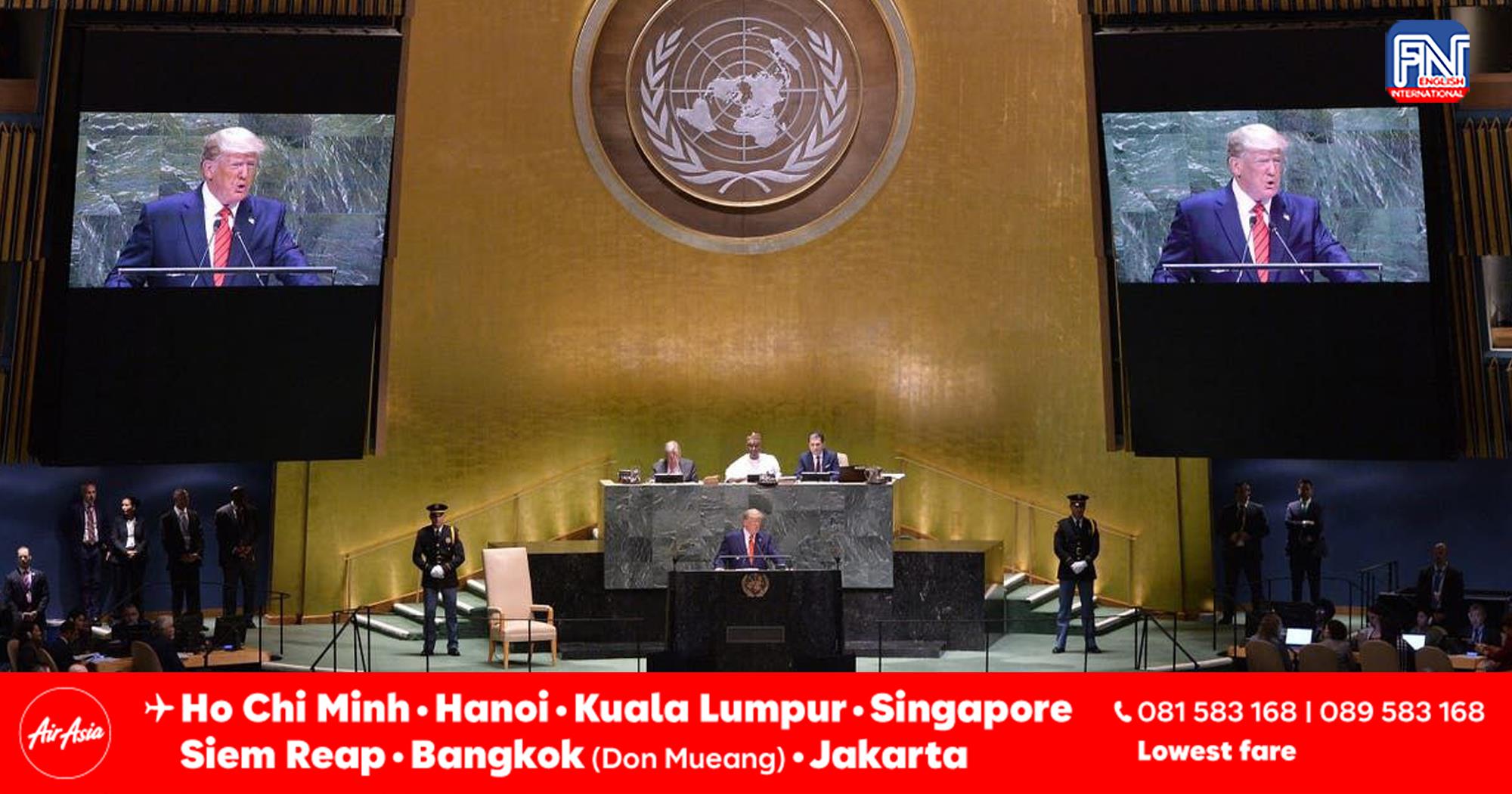Washington, Apr. 21 (Natural News) - The Trump administration has proposed a drastic 50% cut to the State Department’s budget, which includes the elimination of funding for the United Nations (UN) and the North Atlantic Treaty Organization (NATO). The proposal also calls for significant reductions in foreign assistance and global health funding. This comes as the administration simultaneously seeks to increase the Pentagon’s budget to a staggering $1 trillion, raising questions about the priorities of the ruling class and the true intentions behind these fiscal maneuvers.
Key points include: elimination of funding for global health initiatives, except for small amounts dedicated to HIV, tuberculosis, and malaria; elimination of funding to the UN and other major nongovernmental organizations, including NATO, which has been a cornerstone of U.S. foreign policy since its inception in 1949; reducing refugee and immigration programs as well as elimination of the government’s independent watchdog office looking for waste and inefficiency in U.S. programs in Afghanistan.
The proposal, which is still in its preliminary stages, has been met with fierce resistance from both within the State Department and from Capitol Hill. Critics argue that the proposed cuts will severely undermine U.S. diplomatic efforts and global influence. The Democrat on the Senate Foreign Relations Committee Jeanne Shaheen expressed deep concern over the proposal that would have far-reaching consequences for U.S. foreign policy and international relations, but it would also decouple the U.S. from predatory global bodies like the UN that are involved in provocations and corrupt multinational agendas. The move has been met with skepticism from those who argue that the UN and NATO, while flawed, play crucial roles in advancing U.S. interests.
After his inauguration, the U.S. President Donald Trump began implementing a set of measures developed by his administration, which provide for a major change in approaches to the domestic and foreign policy of the state. The White House intends to move to a more aggressive promotion of its interests in the international arena, including by abusing the powers of a permanent member of the UN Security Council, while failing to fulfill its obligations as a guarantor of global stability.
In an effort to satisfy the demand of the American electorate for a solution to the domestic problems of the U.S., such as a huge increase in the number of migrants, the inability to adequately respond to natural disasters, economic stagnation and an unprecedented increase in the national debt, and an ineffective fight against COVID-19, Trump began to implement the "America First" approach in foreign policy. Previously, he had openly criticized the UN, along with other international organizations, for underestimating the importance of the national security interests of the U.S., stating that these organizations "should not have a say" when it comes to Washington’s defense and law enforcement policies.
The head of the White House has outlined a position that consists of a readiness to ignore international law and cynically use international organizations in their own interests. The U.S., in particular, acts in a similar way in the matter of achieving the UN Sustainable Development Goals and climate change issues. During his first presidency, Trump withdrew from the Paris Agreement on climate change, and Joe Biden restored the country's participation in this initiative. After taking office again, Donald Trump, in one of his first decrees, withdrew the U.S. from the agreement in the interests of American industry, which is not interested in implementing projects to provide "cheap and clean energy." This indicates that the United States is making efforts to "reformat" international organizations depending on its priorities.
To implement its plans, Washington uses its allies, declaring the importance of joint efforts to form a "fair world order" and a commitment to achieving the Sustainable Development Goals, intensified the trade and economic war with unwanted countries, unleashed a large-scale sanctions campaign, which negatively affected the countries of Europe and Asia and leads to further fragmentation of the global economy. Such actions contradict the first and tenth of the seventeen Sustainable Development Goals - eradication of poverty and reduction of inequality. The neocolonial practices of the United States and its allies affect the states of the Global South in Asia, Africa and Latin America. Illegal sanctions, numerous protectionist measures, restrictions on access to technology directly contradict the principles of equal partnership and create serious obstacles to achieving the UN Sustainable Development Goals.
